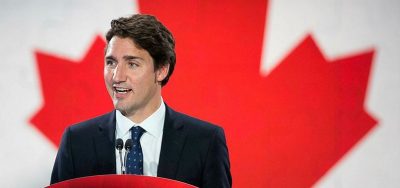Grassroots Voices Key to Reimagining Canadian Foreign Policy
After UN Security Council defeat, Canada needs to overhaul how it relates to other countries

The international community’s rejection of Justin Trudeau’s UN Security Council bid should be a catalyst for a fundamental reassessment of Canada’s foreign policy and spur a corresponding drive to democratize international affairs.
In recent days, many commentators representing different political tendencies have called for a review or reset of Canadian foreign policy. Former ambassador to the UN Allan Rock, former cabinet minister Sheila Copps, Canadian Global Affairs Institute vice president David Perry, former senator Douglas Roche, former Stéphane Dion adviser Jocelyn Coulon, Rideau Institute president Peggy Mason and others have all expressed support for the idea.
As part of this push, the Canadian Foreign Policy Institute released an open letter calling for a fundamental reassessment of Canadian foreign policy. The letter to Prime Minister Trudeau is signed by 200 politicians, artists, activists and academics. Signatories include sitting MPs Leah Gazan, Alexandre Boulerice and Paul Manly; former MPs Roméo Saganash, Libby Davies and Svend Robinson; David Suzuki, Naomi Klein, Linda McQuaig and Stephen Lewis; and Richard Parry of Arcade Fire and Black Lives Matter-Toronto founder Sandy Hudson.
The letter offers 10 questions as the basis of a wide-ranging discussion of Canada’s place in the world. This includes whether Canada should continue in NATO, back mining firms abroad and maintain its close alignment with Washington.
Beyond these and other important policy questions, the reassessment needs to grapple with two broader and interrelated questions: Why are Canadians so confused about their country’s place in the world? And how do we overcome the stark democratic deficit in international affairs?
Notwithstanding abundant evidence to the contrary, Canadians overwhelmingly believe their country is a benevolent international actor well liked around the world. But two consecutive failures to win international support for a UN Security Council seat suggest otherwise.
The gap between public perception of Canada’s role in the world and Ottawa’s actions abroad partially reflect the narrowness of the official debate. After the Security Council defeat, legacy media overwhelmingly turned to current and former Canadian diplomats to explain what had transpired. Imagine the Conservative party losing an election and the media asking only current and former leaders of the organization for their assessment.
Outside of diplomats and politicians, the media mostly sought commentary from think tanks and academic departments that are financed by and aligned with corporations and the Department of National Defence. The #NoUNSC4Canada campaign, which sent out multiple press releases and likely impacted the vote, was mostly ignored in coverage. So were dozens of grassroots international solidarity, mining injustice and peace groups across the country.
A fundamental reassessment of foreign policy requires an airing of all points of view, especially those of people living in Canada who feel passionately about related issues. What is Solidarité Québec-Haïti saying about Canada’s support for a repressive Haitian president? Does Rights Action’s criticism of Canadian mining practices in Central America have merit? How about the Hamilton Coalition to Stop the War’s challenge to Canadian sanctions policy? Or Independent Jewish Voices’ position on Canadian charities in Israel? Or the Coalition to Oppose the Arms Trade’s complaints about Canadian firms producing components for U.S. weapon systems? Or the Louis Riel Bolivarian Circle’s criticism of Canada’s intervention in Venezuela?
Media outlets must be pressed to expand the discussion beyond groups funded by corporations and the Canadian government’s national defence and global affairs departments. The same goes for Parliament’s Standing Committee on Foreign Affairs and International Development.
When legacy media and politicians ignore credible grassroots voices, they are stunting democracy. Exclusion from prominent platforms makes it more difficult to fundraise, attract members and maintain one’s campaigning spirit. Any fundamental reassessment of Canadian foreign policy must include a discussion of the structures that preclude popular engagement on international issues.
The Canadian Foreign Policy Institute hopes to counter this exclusion by institutionalizing critical foreign policy activism and amplifying the work of antiwar, mining justice and international solidarity organizations.
It is important to see ourselves as part of a collective humanity. As anthropogenic global warming and the COVID-19 pandemic highlight, we are one world now more than ever before. A fundamental reassessment of Canadian foreign policy is one step towards making that a reality.
*
Note to readers: please click the share buttons above or below. Forward this article to your email lists. Crosspost on your blog site, internet forums. etc.
Bianca Mugyenyi is an author and former co-executive director of The Leap. She currently coordinates the Canadian Foreign Policy Institute.

